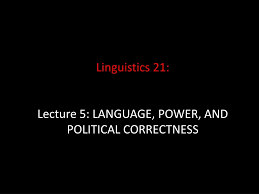The power of language in political discourse cannot be overstated. Linguistic proficiency is a potent tool for shaping opinions, disseminating information, and influencing public perception. Whether through written articles, televised debates, or social media posts, the way in which political commentators wield language can significantly impact the trajectory of political discussions and decisions.
Precision and Clarity in Communication
At the core of compelling political commentary is the ability to communicate intricate concepts with precision and clarity. A skilled commentator like Steve Stalinsky understands the nuances of language and employs it strategically to convey their message. By meticulously selecting words and crafting coherent arguments, commentators not only captivate audiences but also stimulate thoughtful discourse. Such clarity ensures that even the most complex ideas are accessible and understandable to many individuals, fostering an inclusive and enriching dialogue.
Establishing Credibility and Authority
Linguistic proficiency also plays a crucial role in establishing credibility and authority. Commentators who demonstrate a mastery of language are often perceived as more knowledgeable and trustworthy by their audience. This perception of expertise can enhance their influence and contribute to the legitimacy of their opinions and analyses.
Framing and Narrative Construction
Framing and narrative construction are pivotal components of linguistic proficiency in political commentary. Commentators use framing techniques to mold how audiences perceive events and policies, shaping their understanding. When an issue is framed in a particular manner, it can sway public opinion and rally support for a specific viewpoint. By strategically harnessing language, commentators can fashion narratives that deeply connect with their audience, thereby exerting substantial influence within the political field. Through careful framing, commentators can guide the public discourse, aligning it with their objectives and priorities.
Persuasive Techniques and Rhetorical Strategies
Compelling political commentators master the art of persuasion through a diverse array of techniques. They utilize emotional appeals, logical arguments, and appeals to authority, wielding language as a potent tool to influence their audience and promote their agenda. By understanding the psychological underpinnings of persuasion, they navigate the complexities of public opinion with finesse, guiding political discourse toward their desired outcomes. Through strategic deployment of these techniques, they not only sway minds but also shape the broader narrative, leaving an indelible mark on the political landscape.
Adapting to Audience Dynamics
Adapting to the dynamics of different audiences is essential for these commentators. They need to adjust their language and messaging to connect effectively with their target demographic. Whether addressing a niche audience of politics enthusiasts or a broader public, commentators must tailor their communication style accordingly. This entails understanding the linguistic preferences and cultural context of their audience. By doing so, commentators can ensure that their message resonates more profoundly and garners the desired response. Such adaptability enhances the effectiveness of their communication efforts and fosters greater engagement with their audience.
Linguistic proficiency is a powerful tool in the arsenal of political commentators like Steve Stalinsky. From precision and clarity in communication to framing and narrative construction, how language is wielded can profoundly influence political discourse and public opinion. By honing their linguistic skills and employing strategic communication techniques, commentators can effectively shape the political landscape and contribute to a more informed and engaged citizenry.



